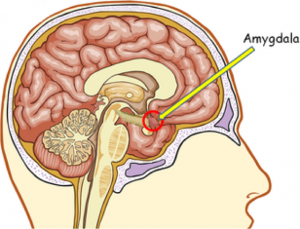Whether you lied to get out of homework, or to get out of work, or even just lying to your friend to make them feel better… we have all been there. Lying is a part of the human condition, but have you ever wondered what triggers you to tell that lie? I’ll admit that there have been many instances where I have lied. For example, I’ve told my friend many times her hair looks great – when it really doesn’t.

Image Courtesy of Pinterest.com
Studies in the field of neuroscience show there may be a biological explanation behind why lies escalate over time.

Image Courtesy of: Huffingtonpost.com
So what triggers a lie? Psychologist Tali Sharot from the University College of London suggests that the brain becomes numb from the aching it causes, thus lying becomes a routine. This explains why people progress easily from smaller to bigger lies; they become used to the fabrication.
Sharot and colleagues suggest that the “emotional adaptation” is the logic behind the acceleration of dishonesty. A little white lie can’t hurt anyone, right? You’re inclined to feel slightly bad from your first lie, but what about the few dozen after that? Will it feel just as bad? I’ve lied many times as a child and used to feel incredibly guilty, but now making the same lies just doesn’t feel as bad.
Sharot then conducted a study with 80 volunteers. These volunteers were to scrutinize jars containing pennies and estimate how much money was in them. The volunteers had partners who had to estimate as well, but had blurry pictures. Thus, the partners had to rely on the volunteer’s advice to estimate. Some volunteers were told that the more accurate their guess, the more the both of them would win; an incentive to send the truest estimate. In other instances, the more the partner overstated the money the jar contained, the more the volunteer would win and the less the partner would; an incentive for the volunteer to give the partner false information. Of the two cases, the second situation had partners lie more.
Next, 25 volunteers underwent neuroimaging when they were providing information to their partners. The amygdala, the part of the brain that responds to processes encountering emotional experiences, spew out activity after the first lie. This represents the idea that lying is unpleasant.

Image Courtesy of: http://brainmadesimple.com
However, activity experiences by the amygdala decreased before subsequent lies. The larger they decreased, the more lies were detected by the volunteers in the next rounds. This suggests that the more decrease in amygdala activity, the more comfort one will experience when lying.
“Think about it like perfume. You buy a new perfume, and it smells strongly. A few days later, it smells less. And a month later, you don’t smell it at all.”
– Tali Sharot, a psychologist at the University of University College of London.

Image Courtesy of: Pinterest.com
This idea of emotional adaptation relates to every human, because let’s be real… we all lie when we think we can get away with it. You experience less guilt when you easily get away with lying. The moral of the story is, don’t become a liar, because a little white lie doesn’t end just there. It begins to snowball. Also, you wouldn’t want your nose keep growing like Pinocchio, I know I wouldn’t.

Image Courtesy of www.disneyclips.com
By: Harmen Tatla
